Safe Schools Declaration
The Safe Schools Declaration is an inter-governmental political commitment that was opened for endorsement by countries at an international conference held in Oslo, Norway, on 28–29 May 2015.[1][2][3][4][5][6] The Declaration provides countries the opportunity to express political support for the protection of students, teachers, and schools during times of armed conflict; the importance of the continuation of education during armed conflict; and the implementation of the Guidelines for Protecting Schools and Universities from Military Use during Armed Conflict.[5][7][8]
As of November 4, 2020, 106 states have endorsed the Safe Schools Declaration, which remains open for additional countries to join.[9][10][11] The Ministry of Foreign Affairs of Norway is the depositary of endorsements.[12][13]
On March 28–29, 2017, the ministries of foreign affairs and defense of Argentina co-hosted the Second International Safe Schools Conference in Buenos Aires.[14]
In May 2017, the United Nations Secretary General, António Guterres, urged all Member States to endorse the Safe Schools Declaration.
On May 28–29, 2019, the Third International Safe Schools Conference was hosted in Palma De Mallorca, Spain.
The Declaration has begun to influence countries' military policies for protecting schools from military use.[15]
Drafting
The Safe Schools Declaration was developed through consultations with states led by the ministries of foreign affairs of Norway and Argentina between January and May 2015.[11][16]
Representatives from more than 60 countries attended the conference launching the Safe Schools Declaration in 2015, along with the Norwegian Foreign Minister Børge Brende, Norwegian Defence Minister Ine Marie Eriksen Søreide, and Ziauddin Yousafzai the father of Nobel Peace Prize laureate Malala Yousafzai.[5][8][17]
Representatives from more than 80 countries attended the second Safe Schools Conference in Buenos Aires in 2017.[18]
Contents and Commitments
"The impact of armed conflict on education presents urgent humanitarian, development and wider social challenges. Worldwide, schools and universities have been bombed, shelled and burned, and children, students, teachers and academics have been killed, maimed, abducted or arbitrarily detained. Educational facilities have been used by parties to armed conflict as, inter alia, bases, barracks or detention centres. Such actions expose students and education personnel to harm, deny large numbers of children and students their right to education and so deprive communities of the foundations on which to build their future. In many countries, armed conflict continues to destroy not just school infrastructure, but the hopes and ambitions of a whole generation of children."
– Opening paragraph of Safe Schools Declaration[7]
The Safe Schools Declaration describes the immediate and long-term consequences of attacks on students, teachers, schools, and universities, and the military use of schools and universities, during times of armed conflict. It contrasts this with the positive and protective role that education can have during armed conflict.[7]
By joining the Declaration, states formally endorse the Guidelines for Protecting Schools and Universities from Military Use during Armed Conflict and commit to “bring them into domestic policy and operational frameworks as far as possible and appropriate.”[7]
The Declaration also contains a number of other commitments aimed at strengthening the prevention of, and response to, attacks on education during armed conflict, including by: collecting reliable data on attacks and military use of schools and universities; providing assistance to victims of attacks; investigating allegations of violations of national and international law and prosecuting perpetrators where appropriate; developing and promoting “conflict sensitive” approaches to education; seeking to continue education during armed conflict; and supporting the work of the United Nations on the children and armed conflict agenda.[7]
Lastly, the Declaration is a framework for collaboration and exchange, as endorsing states also agree to meet on a regular basis to review implementation of the Declaration and use of the Guidelines.[7]
Endorsements
As of November 2020, the following 106 countries have endorsed the Declaration:[9][10]
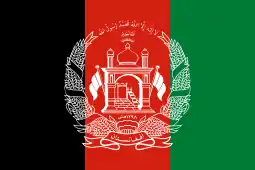 Afghanistan
Afghanistan Albania
Albania Angola
Angola Argentina
Argentina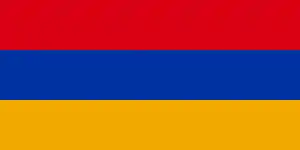 Armenia
Armenia Andorra
Andorra Antigua and Barbuda
Antigua and Barbuda Austria
Austria.svg.png.webp) Belgium
Belgium Benin
Benin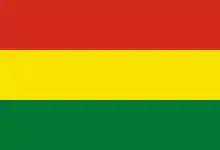 Bolivia
Bolivia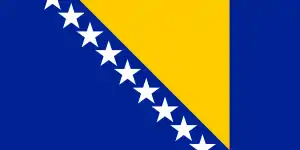 Bosnia
Bosnia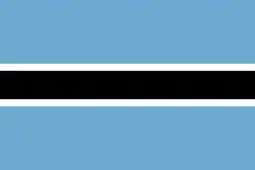 Botswana
Botswana Brazil
Brazil Bulgaria
Bulgaria Burkina Faso
Burkina Faso Cameroon
Cameroon.svg.png.webp) Canada
Canada Central African Republic
Central African Republic Chad
Chad Chile
Chile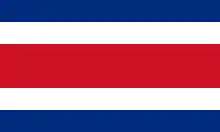 Costa Rica
Costa Rica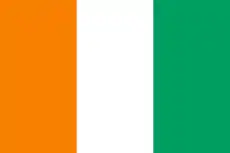 Cote d'Ivoire
Cote d'Ivoire Croatia
Croatia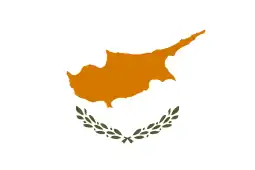 Cyprus
Cyprus Czech Republic
Czech Republic Democratic Republic of Congo
Democratic Republic of Congo Denmark
Denmark Djibouti
Djibouti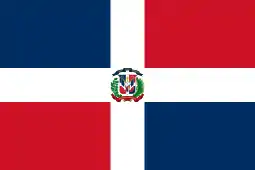 Dominican Republic
Dominican Republic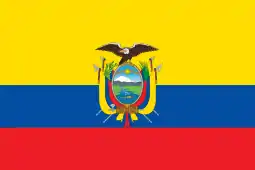 Ecuador
Ecuador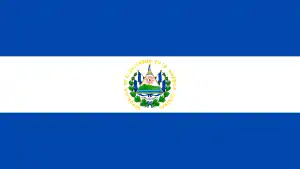 El Salvador
El Salvador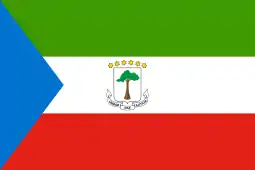 Equatorial Guinea
Equatorial Guinea Estonia
Estonia Fiji
Fiji Finland
Finland France
France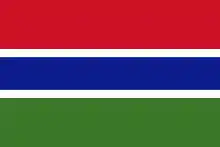 Gambia
Gambia Georgia
Georgia Germany
Germany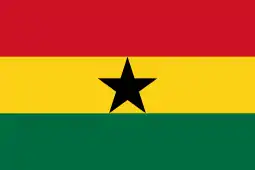 Ghana
Ghana Greece
Greece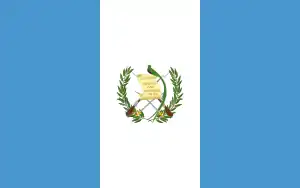 Guatemala
Guatemala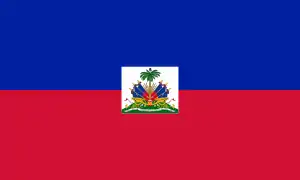 Haiti
Haiti Honduras
Honduras Iceland
Iceland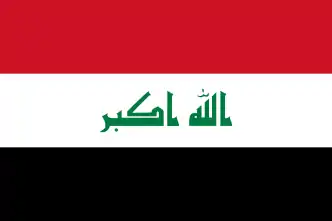 Iraq
Iraq Ireland
Ireland Italy
Italy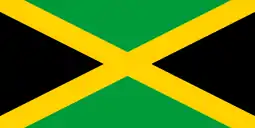 Jamaica
Jamaica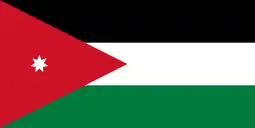 Jordan
Jordan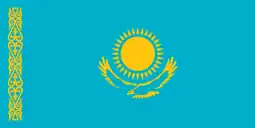 Kazakhstan
Kazakhstan Kenya
Kenya Lebanon
Lebanon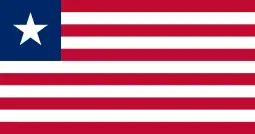 Liberia
Liberia Liechtenstein
Liechtenstein Luxembourg
Luxembourg Macedonia
Macedonia Madagascar
Madagascar Malawi
Malawi Malaysia
Malaysia Mali
Mali Malta
Malta Marshall Islands
Marshall Islands Moldova
Moldova Monaco
Monaco Montenegro
Montenegro Morocco
Morocco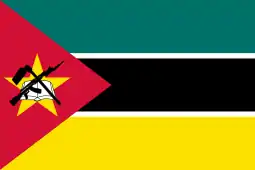 Mozambique
Mozambique New Zealand
New Zealand Netherlands
Netherlands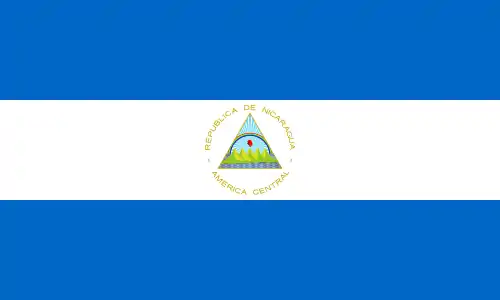 Nicaragua
Nicaragua Niger
Niger Nigeria
Nigeria Norway
Norway Palau
Palau Palestine
Palestine Panama
Panama Paraguay
Paraguay Peru
Peru Poland
Poland Portugal
Portugal Qatar
Qatar Romania
Romania Samoa
Samoa San Marino
San Marino Saint Vincent and the Grenadines
Saint Vincent and the Grenadines Serbia
Serbia Seychelles
Seychelles Sierra Leone
Sierra Leone Slovakia
Slovakia Slovenia
Slovenia Somalia
Somalia South Africa
South Africa South Sudan
South Sudan Spain
Spain Sudan
Sudan Sweden
Sweden Switzerland
Switzerland Ukraine
Ukraine United Kingdom
United Kingdom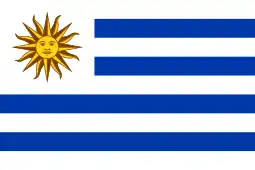 Uruguay
Uruguay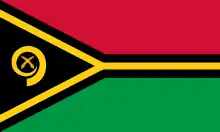 Vanuatu
Vanuatu Vietnam
Vietnam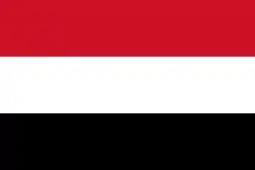 Yemen
Yemen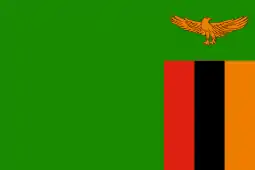 Zambia
Zambia
Reactions
The Secretary-General of the United Nations António Guterres has called upon all countries to endorse the Safe Schools Declaration.[19]
Virginia Gamba, the Special Representative to the UN Secretary-General has said that all countries should endorse the Safe Schools Declaration, as "It has made an essential contribution towards promoting tangible measures to prevent attacks on education."[20]
Former Prime Minister of the United Kingdom, Gordon Brown stated that "every country must now support" the Declaration.[21] The United Kingdom has not endorsed the Safe Schools Declaration.[22] In a letter from the Foreign and Commonwealth Office (02/03/16), James Dudddridge (then the Minister for Africa, the Overseas Territories, and the Caribbean) stated that:
“While we welcome the spirit of the Safe Schools Declaration, we are concerned that the accompanying Guidelines for Protecting Schools and Universities from Military use during Armed Conflict do not mirror the exact language of International Humanitarian Law, which risk complicating the application of International Humanitarian Law”.[23] This has been mirrored in a statement from a representative of the United Kingdom's Foreign and Commonwealth Office.[24]
Leila Zerrougui, the former Special Representative to the Secretary-General of the United Nations said that she would "strongly advocate on behalf of children in conflict situations to persuade as many other Member States as we can to throw their support behind the initiative." [25]
Jan Egeland, Secretary General of the Norwegian Refugee Council noted at the Safe Schools conference that "10 years from now we will look back on this day. Those who endorsed will say ‘we should really have done this earlier’. Those who did not endorse will say ‘why did we not endorse it?'" [26]
References
- "Oslo meet pledges to protect schools in war". The Local No. 2015-05-29.
- Joe Humphreys (2015-05-20). "State urged to sign up to Safe Schools Declaration". Irish Times.
- Ulrike Scheffer (2015-05-17). "Deklaration zum Schutz von Schulen: Menschenrechtler empört über Deutschland". Der Taggespiegel.
- Maria Fluxa (2015-05-29). "28 millones de niños sin educación por culpa de la guerra". El Mundo.
- "Rapport fra konferansen om beskyttelse av utdanning i konfliktsituasjoner". Norwegian Ministry of Foreign Affairs. 2015-10-05.
- Sean Coughlan (2015-05-29). "Campaign to stop attacks on schools". BBC News.
- "Safe Schools Declaration" (PDF). Norwegian Ministry of Foreign Affairs. 2015-05-29.
- Roger Hamilton-Martin (2015-07-02). "Countries Commit to Protecting Education During Conflict". Inter Press Service News Agency.
- "States that have endorsed the Safe Schools Declaration". Norwegian Ministry of Foreign Affairs.
- "Safe Schools Declaration Endorsements". Global Coalition to Protect Education from Attack. Retrieved 2015-10-13.
- Børge Brende (2015). "Introduction by the Norwegian Minister of Foreign Affairs Mr. Børge Brende" (PDF). Norwegian Ministry of Foreign Affairs.
- "Endorsement of the Safe Schools Declaration". Norwegian Ministry of Foreign Affairs.
- "Letter for Endorsing the Safe Schools Declaration" (PDF). Retrieved 2015-10-12.
- "Second International Conference on Safe Schools". Argentine Ministry of Foreign Affairs.
- Sheppard, Bede (August 2019). "Keeping schools safe from the battlefield: Why global legal and policy efforts to deter the military use of schools matter". International Review of the Red Cross. 101 (911): 665–684. doi:10.1017/S1816383119000584. ISSN 1816-3831.
- "Guidelines for Protecting Schools from Military Use:Next steps". Global Coalition to Protect Education from Attack.
- "Broad support for protecting education from attack". Norwegian Ministry of Foreign Affairs. 2015-05-29.
- "Over 80 states gather to discuss Safe Schools Declaration at Buenos Aires conference". Global Coalition to Protect Education from Attack. 2017-03-30.
- United Nations Secretary-General (2017-05-10). "Report of the Secretary-General on the protection of civilians in armed conflict". UN Document S/2017/414.
- Virginia Gamba (2017-10-13). "Statement by Virginia Gamba, Security Council Arria Meeting on Attacks on Schools".
- Gordon Brown (2015-04-02). "Enough! The Attacks on Schools Must End". Huffington Post.
- https://www.theguardian.com/global-development/2016/may/06/education-conflict-uk-stand-up-to-save-education-from-bullets-and-bombs
- Letter from the Foreign and Commonwealth Office, dated 2 March 2016.
- https://www.telegraph.co.uk/education/2016/05/27/education-under-fire-why-urgent-action-is-needed/
- "Statement of Leila Zerrougui delivered at "Side-Event" of Human Rights Council: Protecting Education from Attack". Office of the Special Representative of the Secretary-General for Children and Armed Conflict. 2015-06-24.
- Hanne Eide Andersen (2015-05-29). "We urge all governments to endorse the Safe Schools Declaration". Norwegian Refugee Council.